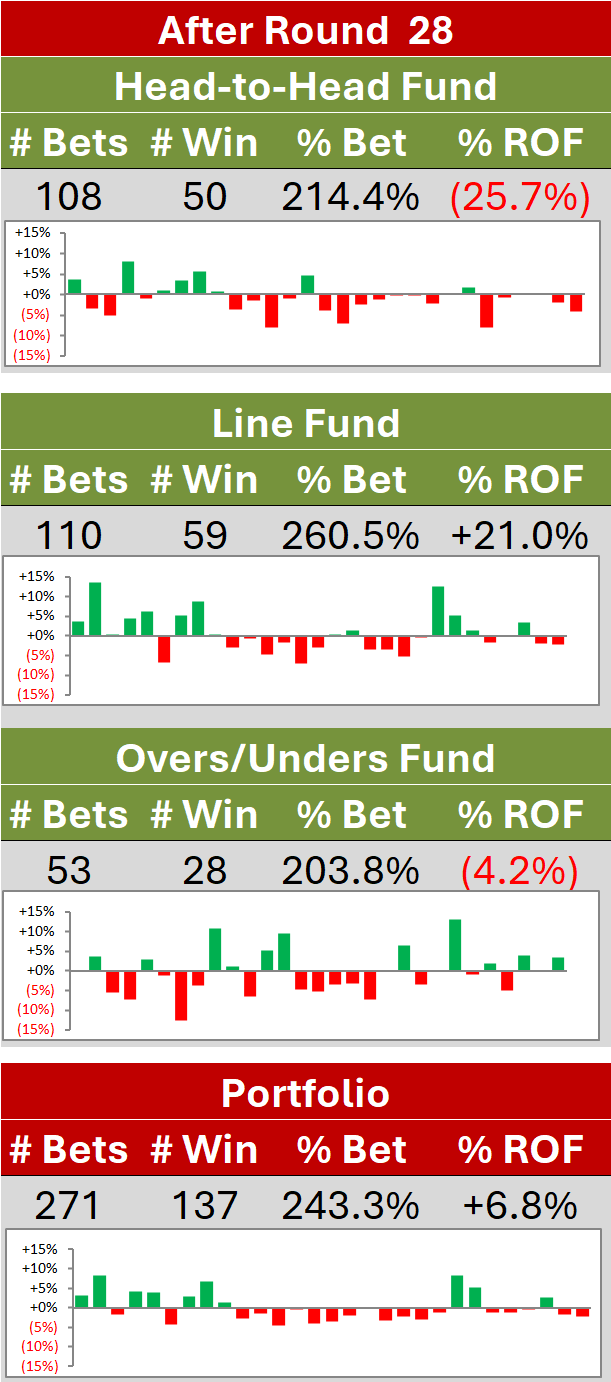Modelling Game Outcomes In-Running
/Way back in 2010 I developed a model to estimate the Home team's chances of victory in-running (ie during the course of a game) based on the lead it held at the time and the time remaining in the game. In a subsequent post I investigated ways of combining the in-running projections of that model with the TAB Bookmaker's pre-game assessments in something of a proto-Bayesian way.
Read More
